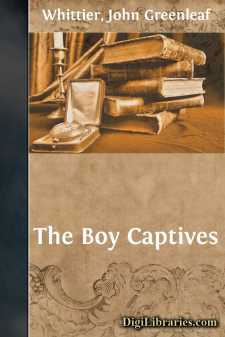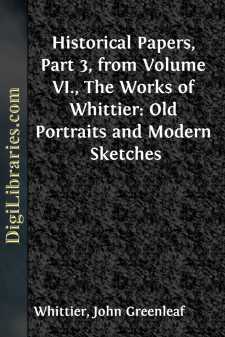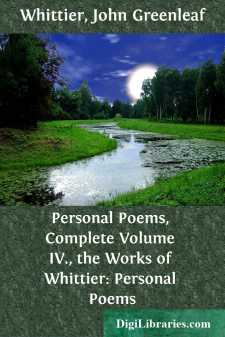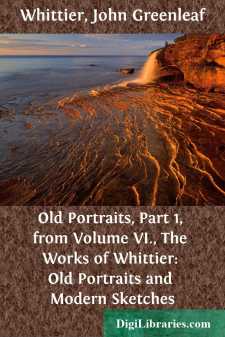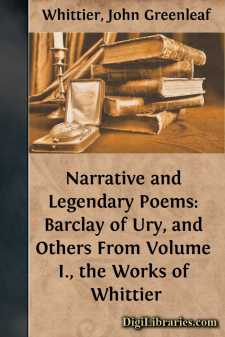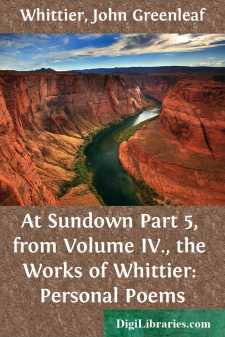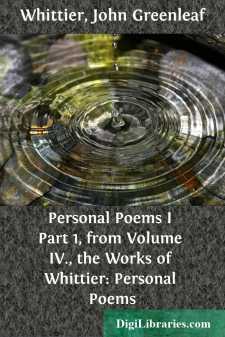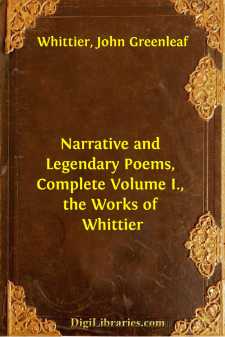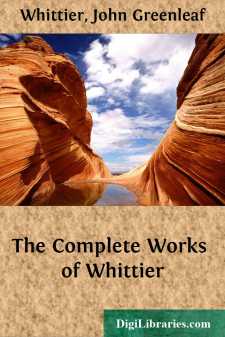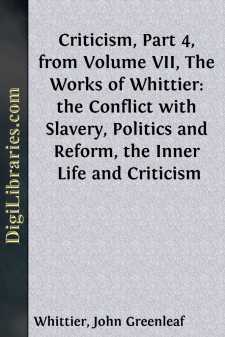Categories
- Antiques & Collectibles 13
- Architecture 36
- Art 48
- Bibles 22
- Biography & Autobiography 813
- Body, Mind & Spirit 142
- Business & Economics 28
- Children's Books 14
- Children's Fiction 11
- Computers 4
- Cooking 94
- Crafts & Hobbies 4
- Drama 346
- Education 46
- Family & Relationships 57
- Fiction 11829
- Games 19
- Gardening 17
- Health & Fitness 34
- History 1377
- House & Home 1
- Humor 147
- Juvenile Fiction 1873
- Juvenile Nonfiction 202
- Language Arts & Disciplines 88
- Law 16
- Literary Collections 686
- Literary Criticism 179
- Mathematics 13
- Medical 41
- Music 40
- Nature 179
- Non-Classifiable 1768
- Performing Arts 7
- Periodicals 1453
- Philosophy 64
- Photography 2
- Poetry 896
- Political Science 203
- Psychology 42
- Reference 154
- Religion 513
- Science 126
- Self-Help 84
- Social Science 81
- Sports & Recreation 34
- Study Aids 3
- Technology & Engineering 59
- Transportation 23
- Travel 463
- True Crime 29
John Greenleaf Whittier
John Greenleaf Whittier was a prominent 19th-century American poet and abolitionist known for his advocacy against slavery through both his literary works and political activism. Born in 1807 in Haverhill, Massachusetts, he was a key figure in the American literary movement and a founding member of the American Anti-Slavery Society. His best-known works include the poem "Snow-Bound," which nostalgically reflects on rural life and family, earning him widespread acclaim.
Author's Books:
Sort by:
THE township of Haverhill, even as late as the close of the seventeenth century, was a frontier settlement, occupying an advanced position in the great wilderness, which, unbroken by the clearing of a white man, extended from the Merrimac River to the French villages on the St. Francois. A tract of twelve miles on the river and three or four northwardly was occupied by scattered settlers, while in the...
more...
Perhaps the most unlucky portion of the unlucky speech of Henry Clay on the slavery question is that in which an attempt is made to hold up to scorn and contempt the great Liberator of Ireland. We say an attempt, for who will say it has succeeded? Who feels contempt for O'Connell? Surely not the slaveholder? From Henry Clay, surrounded by his slave- gang at Ashland, to the most miserable and...
more...
A LAMENT "The parted spirit,Knoweth it not our sorrow? Answereth notIts blessing to our tears?" The circle is broken, one seat is forsaken,One bud from the tree of our friendship is shaken;One heart from among us no longer shall thrillWith joy in our gladness, or grief in our ill. Weep! lonely and lowly are slumbering nowThe light of her glances, the pride of her brow;Weep! sadly and long shall...
more...
JOHN BUNYAN. "Wouldst see A man I' the clouds, and hear him speak to thee?" Who has not read Pilgrim's Progress? Who has not, in childhood, followed the wandering Christian on his way to the Celestial City? Who has not laid at night his young head on the pillow, to paint on the walls of darkness pictures of the Wicket Gate and the Archers, the Hill of Difficulty,...
more...
BARCLAY OF URY. Among the earliest converts to the doctrines of Friends in Scotland was Barclay of Ury, an old and distinguished soldier, who had fought under Gustavus Adolphus, in Germany. As a Quaker, he became the object of persecution and abuse at the hands of the magistrates and the populace. None bore the indignities of the mob with greater patience and nobleness of soul than this once proud...
more...
AT SUNDOWN TO E. C. S. Poet and friend of poets, if thy glassDetects no flower in winter's tuft of grass,Let this slight token of the debt I oweOutlive for thee December's frozen day,And, like the arbutus budding under snow,Take bloom and fragrance from some morn of MayWhen he who gives it shall have gone the wayWhere faith shall see and reverent trust shall know. THE CHRISTMAS OF 1888. Low...
more...
PERSONAL POEMS A LAMENT "The parted spirit, Knoweth it not our sorrow? Answereth not Its blessing to our tears?" The circle is broken, one seat is forsaken,One bud from the tree of our friendship is shaken;One heart from among us no longer shall thrillWith joy in our gladness, or grief in our ill. Weep! lonely and lowly are slumbering nowThe light of her glances, the...
more...
PROEM I LOVE the old melodious laysWhich softly melt the ages through,The songs of Spenser's golden days,Arcadian Sidney's silvery phrase,Sprinkling our noon of time with freshest morning dew. Yet, vainly in my quiet hoursTo breathe their marvellous notes I try;I feel them, as the leaves and flowersIn silence feel the dewy showers,And drink with glad, still lips the blessing of the sky. The...
more...
PROEM I LOVE the old melodious laysWhich softly melt the ages through,The songs of Spenser's golden days,Arcadian Sidney's silvery phrase,Sprinkling our noon of time with freshest morning dew. Yet, vainly in my quiet hoursTo breathe their marvellous notes I try;I feel them, as the leaves and flowersIn silence feel the dewy showers,And drink with glad, still lips the blessing of the sky. The...
more...
CRITICISM EVANGELINE A review of Mr. Longfellow's poem. EUREKA! Here, then, we have it at last,—an American poem, with the lack of which British reviewers have so long reproached us. Selecting the subject of all others best calculated for his purpose,—the expulsion of the French settlers of Acadie from their quiet and pleasant homes around the Basin of Minas, one of the most sadly romantic...
more...


